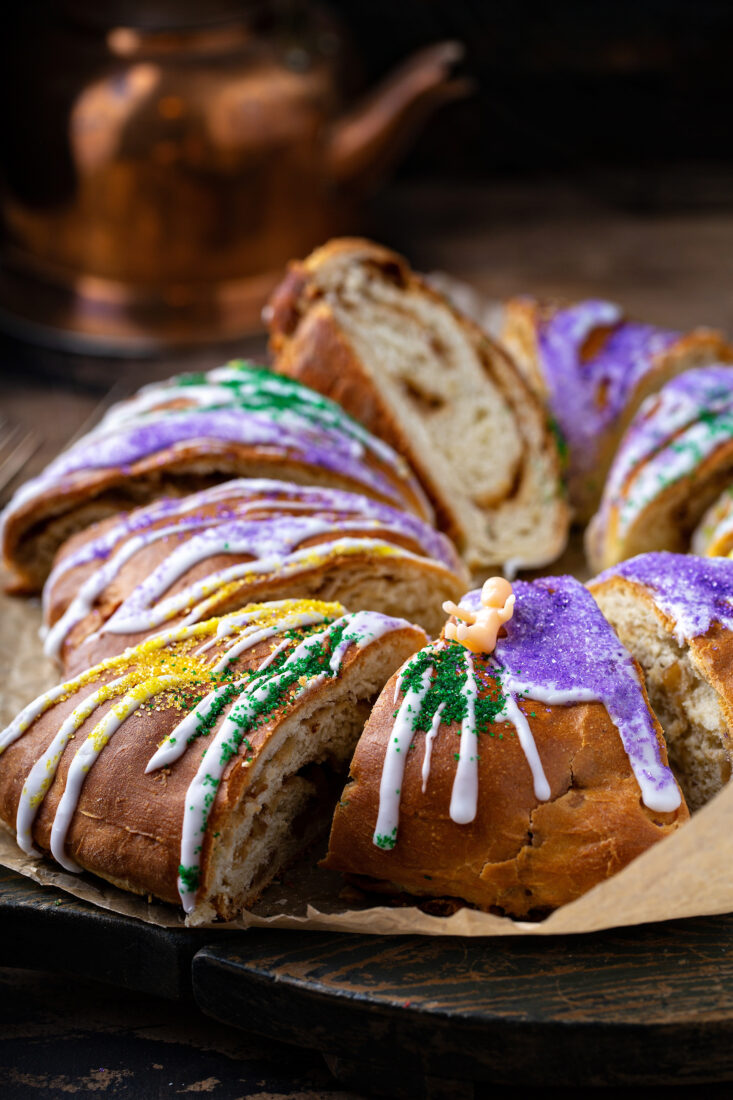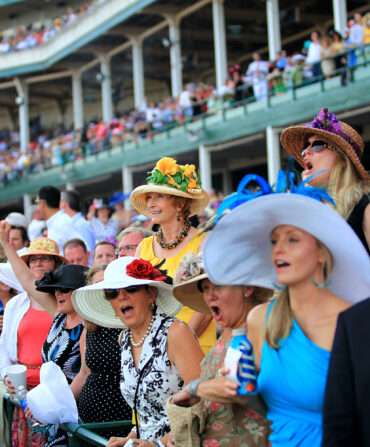A few years ago, a New Orleans friend of mine was chatting on the phone with an acquaintance on the West Coast. He happened to mention that king cake season was about to begin. There was a long pause, and then the voice at the end of the line said, “Wait. You bastards have a cake season?”

Yes, New Orleans has a cake season. It’s technically called Carnival, and it starts on January 6, known as Twelfth Night or the Epiphany. The date marks twelve days after Christmas, when the three wise men came to visit the baby Jesus. The days between then and Mardi Gras are collectively called Carnival, when decadence reigns before the austerity of Lent.
Dig deep enough, and New Orleans cake season can trace its roots back to medieval Europe. For centuries in Catholic countries, Twelfth Night was traditionally marked by baking a cake at home. Into each cake, a dried bean was hidden. If you got a slice with the bean, you were crowned king for the day.
The tradition has had revivals and near-extinctions, with dozens of variations ever since. One 1893 account of Twelfth Night in Louisiana noted that it was called “Le Petit Noel,” when children would hang up stockings again in hopes of receiving more gifts. “Perhaps the most curious and popular Spanish custom of the festival was the ceremony of the cutting of the King’s Cake,” the account continued, “and the happy omen which attached itself to the lucky finder of the bean or pecan hidden within.”
Finding the bean went from being a harbinger of good luck to a modest burden: At some point, the “lucky” recipient was expected to host the next king cake party. King cakes were now served not just on Twelfth Night, but every day between then and Mardi Gras. King cakes and the parties to enjoy them became the stitching that connected the weeks between the beginning and end of Carnival, keeping the festive atmosphere alive.
“Absolutely, King cake is the constant through the whole of carnival,” says Chaya Conrad, who bakes 12,000 king cakes each cake season in the compact Bywater Bakery she runs with her husband, Alton Osborne, in New Orleans’ Bywater neighborhood.
Somewhere along the line, the bean was forsaken and replaced by a small figurine shaped like a baby, first made of ceramic and then of plastic. Why? In 1976, Buddy Stall, a popular chronicler of New Orleans history, reported that the bean turned into a baby because people would just swallow the bean if they didn’t want to host the next party. A baby made it harder to shirk one’s duty.
The current tradition is less onerous. If you find a baby in your slice, you’re expected to bring the king cake to the next event. Or you bring another cake to work, if that’s where you found it. This has become the bane of office workers throughout greater New Orleans, even if the tradition is keeping the economy alive. It’s estimated that some 750,000 king cakes are sold during Carnival, with more than half of those accounted for by Rouses, a Louisiana-based grocery chain.
One tradition, however, has remained sacrosanct throughout it all: You never sell nor eat king cake before January 6. “Nope, nope, nope-ity, nope!” says Jessie Wightkin Gelini, chef instructor at the New Orleans Center for Creative Arts, which makes and sells hundreds of king cakes each year, although never before January 6. “If you eat king cake early,” she says, “it will rain on Mardi Gras Day and the Saints will lose.”
Conrad agrees. Bywater Bakery kicks off the season on January 6 with lines of customers picking up their cakes, while sidewalk bands entertain. “It’s not going to rain on Mardi Gras day because of my bakery,” she says. “If it rains on Mardi Gras, it’s Rouses’ fault.”








